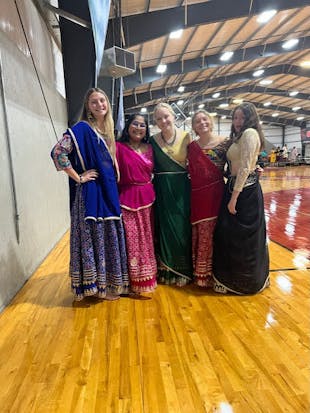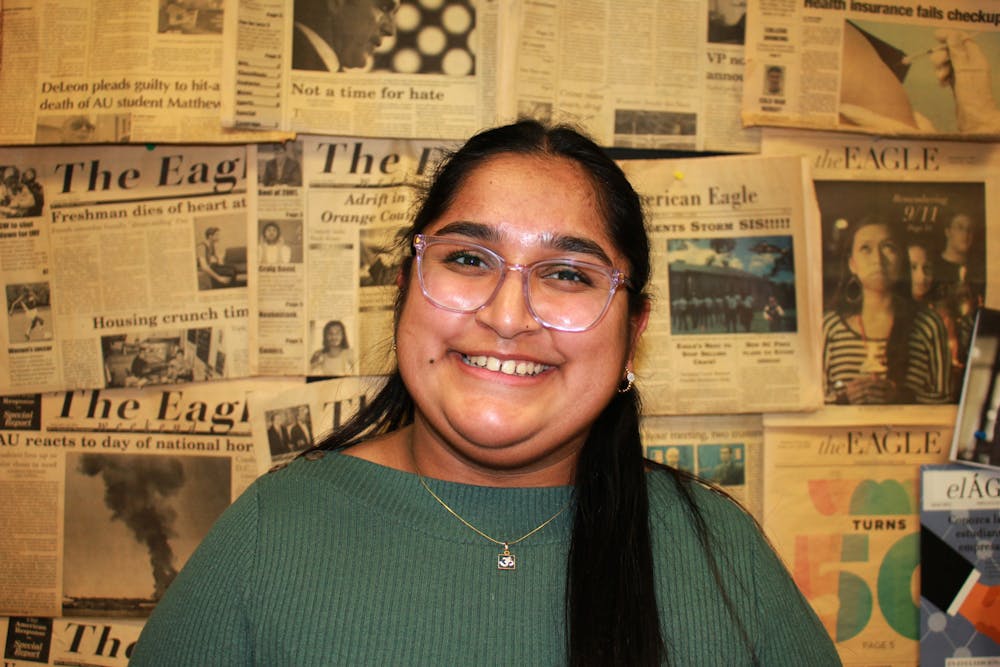The following piece is an opinion and does not reflect the views of The Eagle and its staff. All opinions are edited for grammar, style and argument structure and fact-checked, but the opinions are the writer’s own.
My name is Ritika, a name that is a constant source of mispronunciations. The variations, from Ri-tee-kha to Rii-thi-kha, may appear trivial, but they significantly impact my identity. They influence how I’m addressed and how I’m perceived, and ultimately, they stir a mix of emotions about my name and identity, ranging from frustration to a sense of belonging.
After coming to college, I started to make more Indian friends, and frequently, I would catch myself pronouncing my name as Ri-tee-kha and not the authentic Indian pronunciation of Rii-thi-kha. It would catch me off guard, and I would often not even completely realize my mistake. Then, at our second meeting or hang out, I would correct them, or they would say that their Indian parents would scold them for using the wrong pronunciation.

Since kindergarten, I have created this subconscious divide within myself — my school friends vs my family friends and Indian friends. Each group had its own pronunciation, leading me to have two different ‘versions’ of myself. This is not to say that I am not proud of my Indian heritage. I would argue that to be highly untrue. My friends from home and here at American University who are not of Indian descent have often attended Indian events. They have enjoyed the glitz and glam of these events and have been able to get fully dressed up in the traditional outfit.
I am a daughter of immigrants and a first-generation American who grew up in Des Moines, Iowa. My parents cautiously chose Ritika as a name so it could avoid mispronunciation or bullying. Before I was born, my mom recanted a story of giving the list of my potential names to the ladies at her nail salon and asking them to pronounce them and if or how they could poke fun at these names. This was a major deciding factor in my parents choosing my name.
I am not alone in this. Many of my peers struggle with this divide as well. Bostonia, the Boston University Alumni Magazine, writes about this phenomenon in many Eastern Asian countries. Author Steve Holt uses the example, “Min Sung is now Jeff. Botai is now Jerry. Yuanyuan is now Amanda.” While my example is not as drastic, it shows how to further assimilate with those around us; we change our names to make it easier for us.
I’m not claiming that I was forced to change my name to make certain groups more comfortable, but I am here to call attention to how many of us change to assimilate further. These good or bad features show just the depth of what our parents do and what we do to ensure that we can “blend in.”
At least in my generation, I know of a lot of my Indian friends who have started a journey to reclaim their names, wanting to start to use their Indian pronunciation of the name in all settings. This is different for me; I almost appreciate the separations the pronunciation offers. It’s a journey of self-discovery and acceptance, where my name represents all the different identities of who I am, but it connects it all back to me — Ritika. I hope this inspires you to embrace your own unique identity, whatever it may be.
When you interact with a friend who has an ethnic name, take a moment to ask them for the correct pronunciation. It’s not just about using it immediately, but about showing respect and understanding for their identity. Understanding the nuances of their name can make a world of difference in how you connect with them, fostering a deeper sense of respect and understanding.
Ritika Shroff is a freshman in the School of Public Affairs and a columnist for The Eagle.
This article was edited by Alana Parker, Jelinda Montes and Abigail Turner. Copy editing done by Luna Jinks, Isabelle Kravis and Charlie Mennuti.





